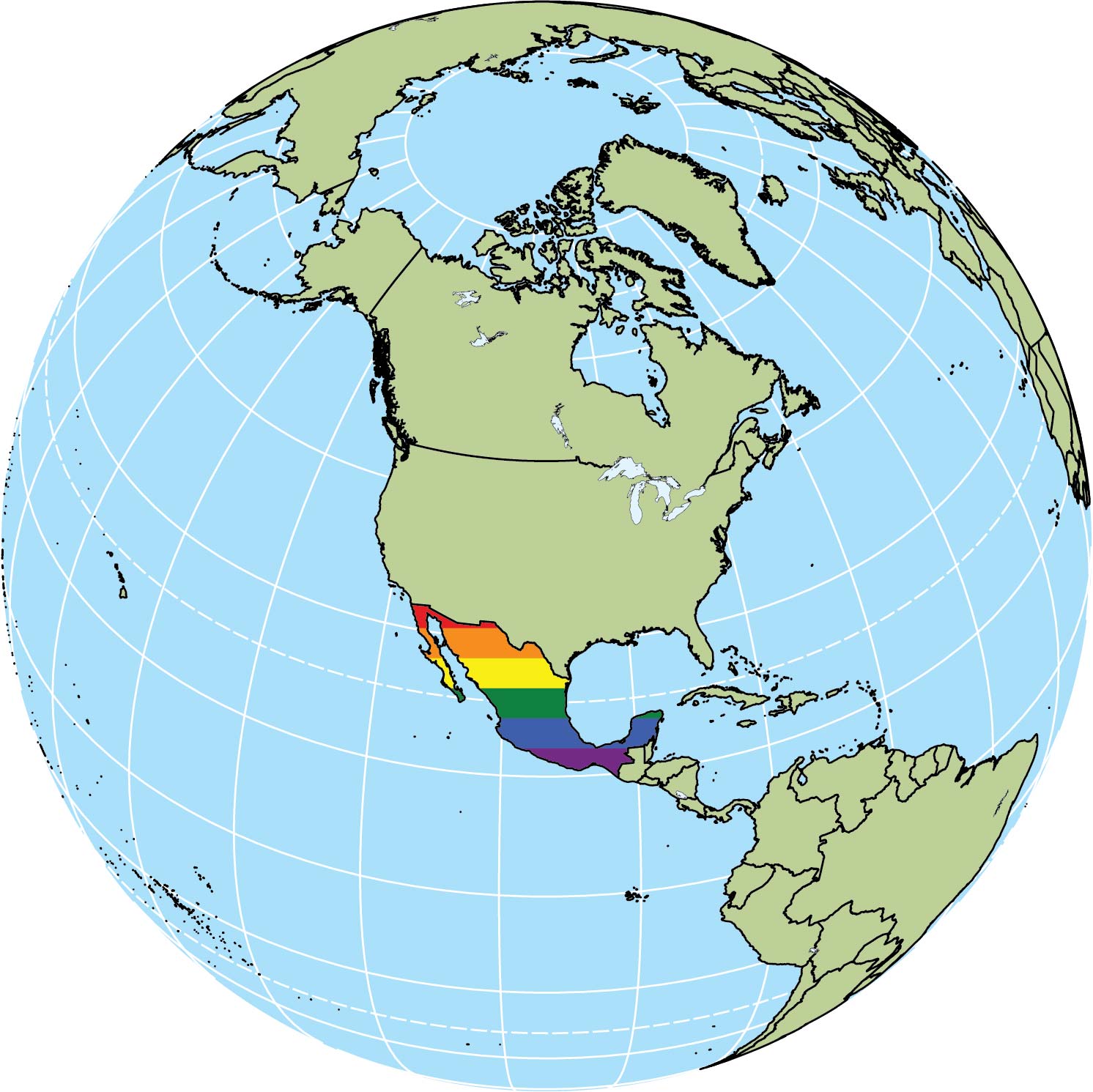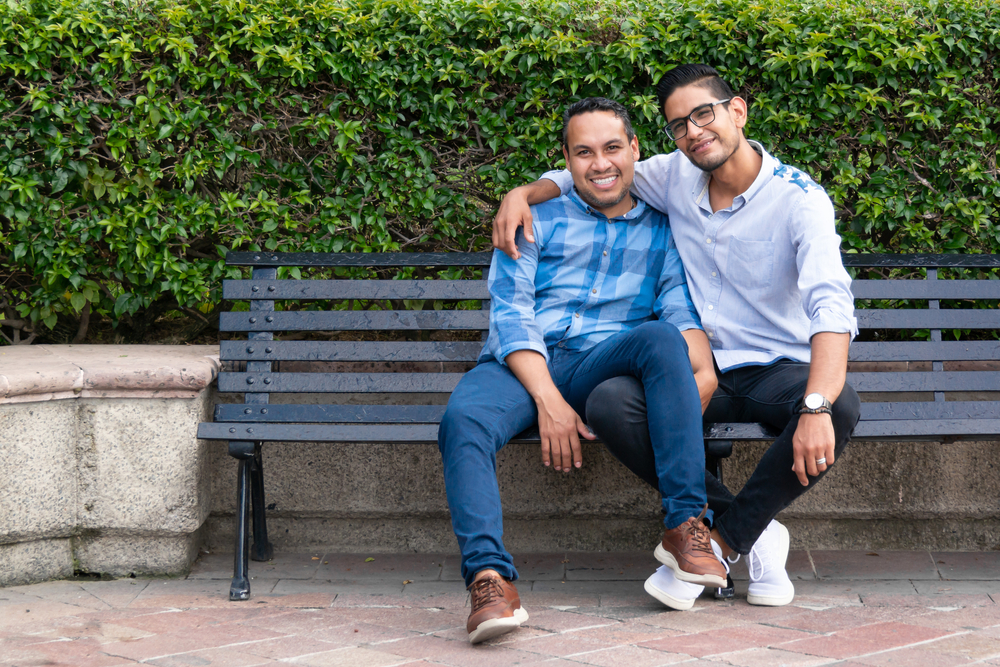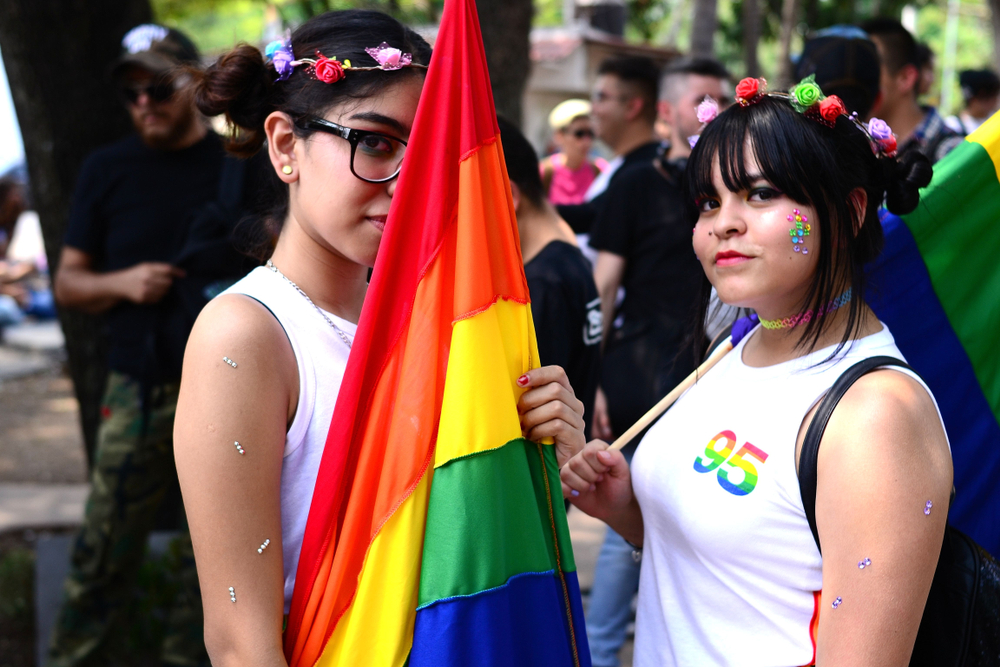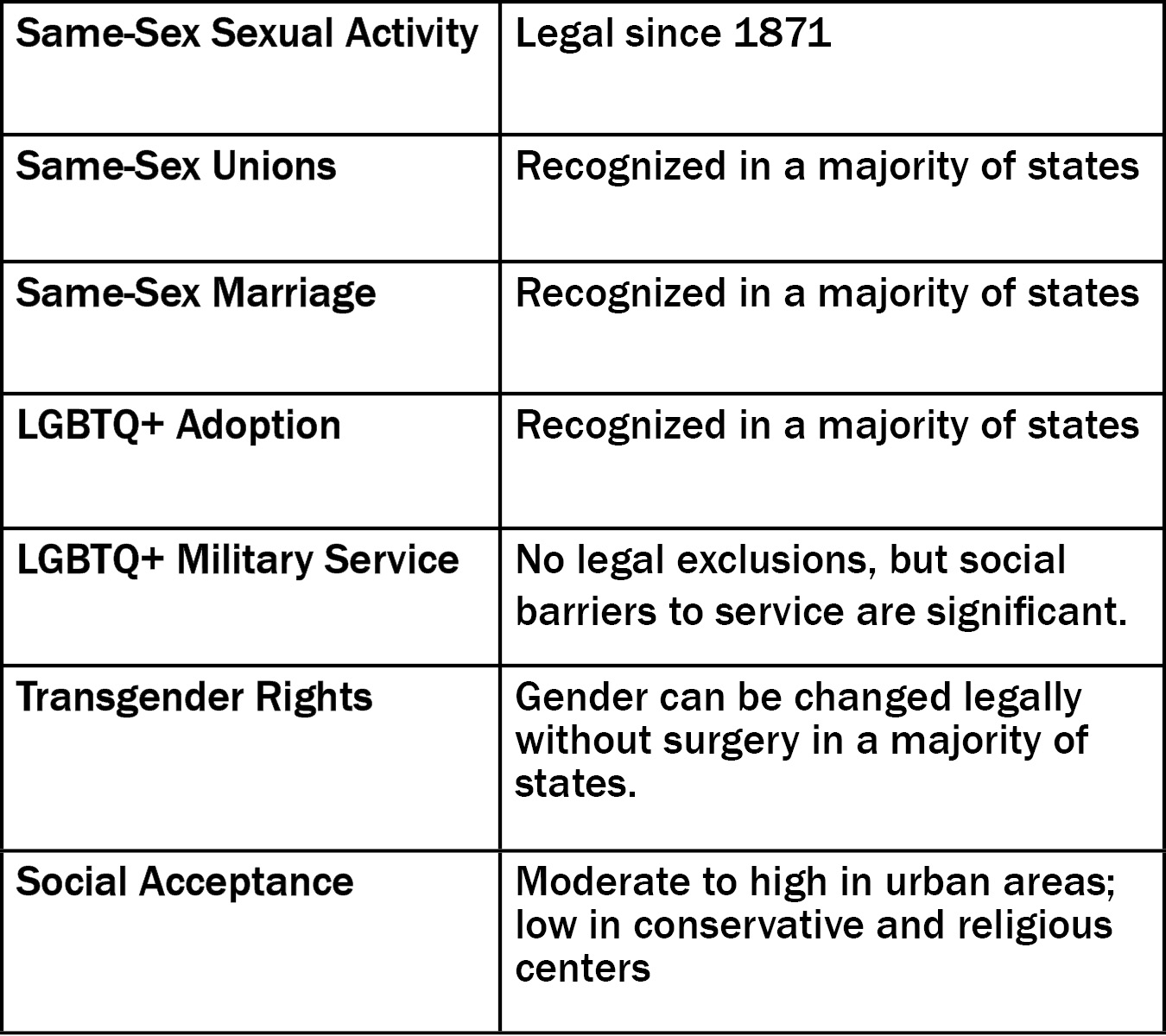LGBTQ: Legal and Cultural Status
Over the past few years, the LGBTQ+ community has been the beneficiary of a marked shift in global public opinion, with movement towards greater cultural acceptance and enhanced legal status. Nevertheless, views are not uniform across all countries.
In the most progressive countries, members of the LGBTQ+ community enjoy cultural acceptance, social freedoms, and full legal status. In the most restrictive countries, identifying as LGBTQ+ or engaging in same-sex acts is punishable by jail or death.
When preparing to travel abroad as a tourist or for business, members of the LGBTQ+ community should thoroughly research country-specific legal, cultural, and security issues prior to departure.
Understanding where a destination country falls on the spectrum of acceptance allows LGBTQ+ individuals to decide whether to travel to a given destination and to understand how to conduct themselves safely when they arrive.
Legal Facts
Same-Sex Sexual Activity
Same-sex sexual activity has been legal in Mexico since 1871. The French briefly occupied Mexico from 1862 until 1867. Mexico subsequently adopted the French Penal Code which had the effect of decriminalizing private same-sex sexual activity.
Same-Sex Unions
The Mexican legal system makes it difficult for federal laws to be applied evenly across all of Mexico’s 32 states. Many states have also overruled language that once referred to same-sex unions in favor of language that legalizes same-sex marriage. Currently, same-sex unions which grant property and inheritance rights are issued in Mexico City, Coahuila, Colima, Campeche, Jalisco, Michoacan, Tlazcala, and Veracruz. These states all legalized the practice of same-sex civil unions between 2007 and 2020.
Mexico City was the first federal district to consider same-sex union legislation. In 2006, the Legislative Assembly of Mexico City passed a law called Ley de Sociedades de Convivencia. The law laid the groundwork for other states to pass similar legislation.
Same-Sex Marriage
Federally, the movement toward same-sex marriage legalization was also driven by Mexico City. In 2009, the Legislative Assembly of Mexico City passed an amendment to the city’s civil code which legalized same-sex marriage. The Supreme Court of Mexico upheld the amendment as constitutional. In 2010, the Supreme Court of Mexico further ruled that same-sex marriages issued in Mexico City are legally valid throughout the country.
There have been three primary ways same-sex marriage has been legalized in various states in Mexico. Some local governments have passed laws legalizing the practice, other governments simply ignore laws condemning the practice and issue marriage certificates to same-sex couples, and some regions have depended on rulings from the Supreme Court. These methods have effectively legalized same-sex marriage in Aguascalientes, Baja California, Baja California Sur, Campeche, Chiapas, Chihuahua, Coahuila, Colima, Hidalgo, Jalisco, Michoacán, Morelos, Nayarit, Nuevo León, Oaxaca, Puebla, Quintana Roo, San Luis Potosí, Sinaloa, Sonora, Tlaxcala, and some municipalities in Guerrero and Zacatecas. Marriages performed in any of these regions are recognized throughout the country.
Adoption
Mexico City was also one of the federal districts in Mexico to allow same-sex couples to adopt, making the practice legal in 2010. Coahuila followed in 2011 when their Supreme Court ended the same-sex adoption ban. Most states in Mexico that allow same-sex couples to adopt have used their local Supreme Court of the national Supreme Court to strike down laws which ban same-sex adoption. The states in Mexico that allow same sex adoption are Aguascalientes, Baja California, Campeche, Chiapas, Chihuahua, Coahuila, Colima, Jalisco, Hidalgo, Michoacán, Morelos, Nuevo León, Puebla, Querétaro, San Luis Potosí and Veracruz allow for same-sex couples to adopt children jointly.
Military Service
There are no laws or rules which ban LGBTQ+ individuals from serving in the military, and the subject is not typically discussed during the process of applying to the military. However, LGBTQ+ individuals who disclose their gender or sexual orientation once serving have a history of being harassed and forced out of the military. So while there are no laws against LGBTQ+ individuals serving in the military, there are powerful social barriers.
Gender Identity Laws
In 2014, Mexico City passed a law that allowed transgender individuals to change their name and legal gender without having to undergo gender reassignment surgery. Though Mexico City was the first to pass such laws, Michoacán, Nayarit, Coahuila, Hidalgo, San Luis Potosí, Colima, Baja California, Oaxaca, Tlaxcala, Chihuahua, Sonora, Jalisco, Quintana Roo, Puebla, Baja California Sur, and the State of Mexico have all followed suit.
Anti-Discrimination Laws
Mexico was the second country in Latin America to pass anti-discrimination laws which included LGBTQ+ individuals as potential targets of discrimination. The law was called Ley Federal para Prevenir y Eliminar la Discriminación (The Federal Law to Prevent and Eliminate Discrimination) and it was passed on April 29th, 2003. Additional hate crime laws that explicitly punish discriminatory violence have been passed in 16 states.
Cultural Considerations
Public Opinion
Recent polling suggests that more than half of Mexican people believe members of the LGBTQ+ community should be accepted by society. However, LGBTQ+ individuals in Mexico do report being victims of discrimination and violence. One poll found that nearly half of all Mexican citizens would not want an LGBTQ+ individual living or staying in their home.
Public Displays of Affection
Mexico, and especially the city’s urban centers, are notorious for public displays of affection. Mexico City especially has a reputation for being full of young couples who engage in intense displays of affection publicly. There are many areas of major cities in Mexico where LGBTQ+ individuals engaging in these same behaviors would not be seen as out of the ordinary. However, due to the divide in opinions regarding LGBTQ+ individuals and couples, there is always a higher chance their public affection will draw more attention than that of a heterosexual couple.
Opinions on Cohabitation
The majority of Mexican citizens are comfortable with LGBTQ+ couples living private lives, and there are no widespread opinions condemning the cohabitation of these couples.
Consistency of Opinions
Mexico is very inconsistent when it comes to the opinions of individuals toward the LGBTQ+ community. Areas like Mexico City, and especially the city's gay-friendly Rosa District, are very welcoming places, while the more religious and conservative states throughout the country are less welcoming.
Article written for World Trade Press by Taylor Holloran.
Copyright © 1993—2024 World Trade Press. All rights reserved.

 Mexico
Mexico 


